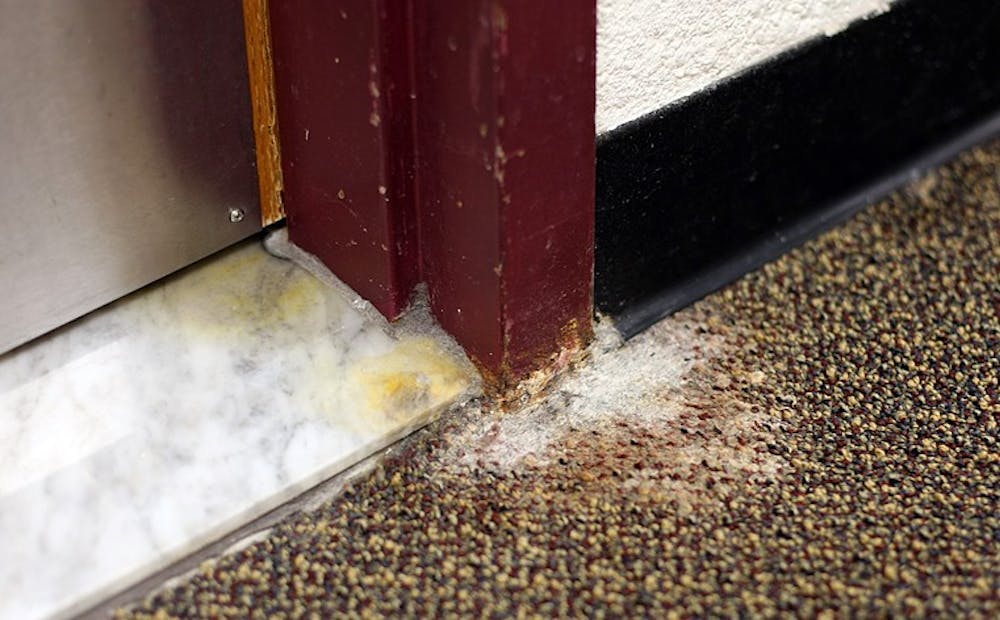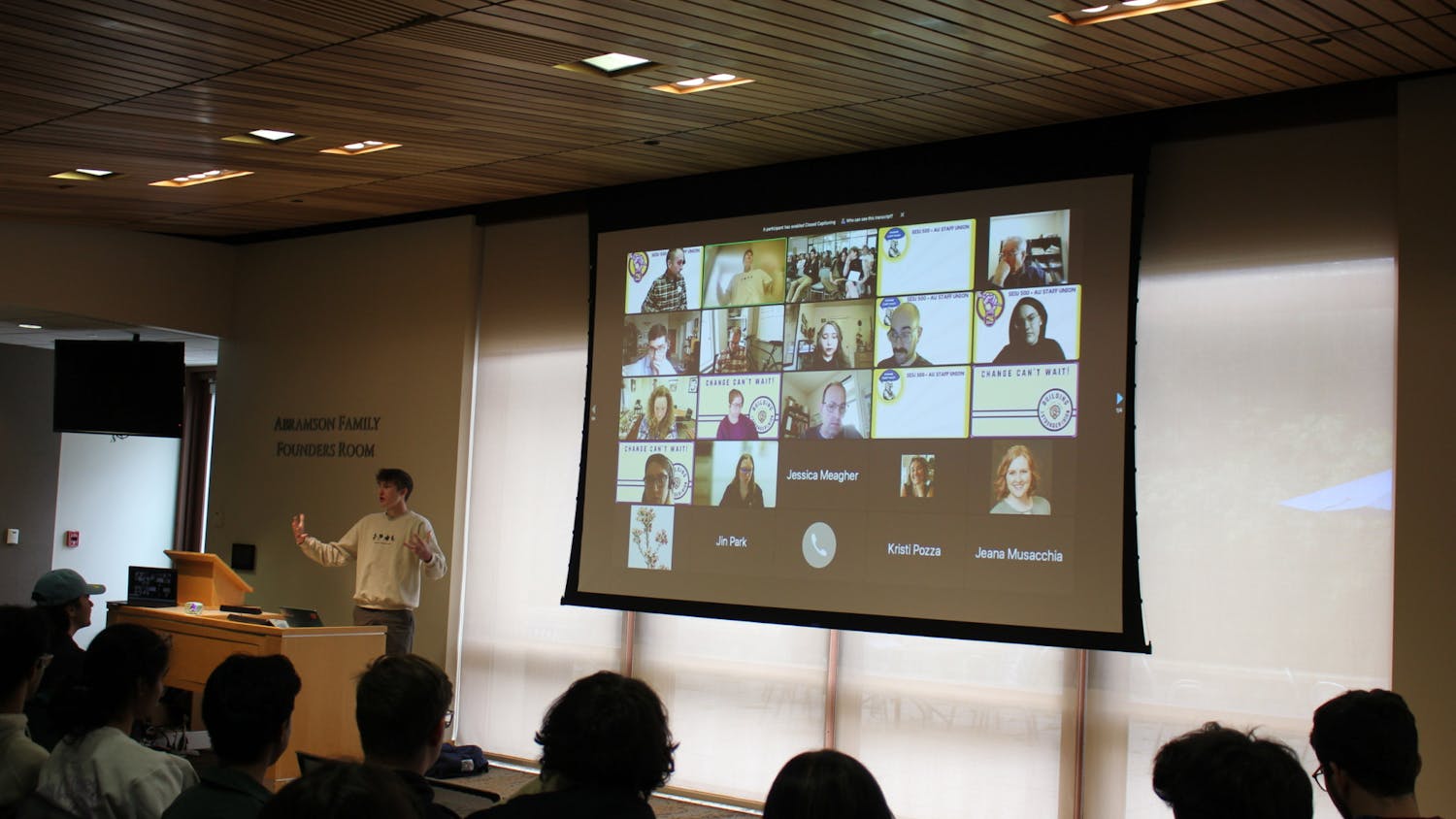An AU student was recently moved out of his dorm room in McDowell Hall because the presence of mildew was making him sick.
William Hea, a sophomore in the School of International Service and former resident of McDowell Terrace, said he became sick immediately after moving into his room. He woke up one night and discovered mold — which Facilities Management eventually determined to actually be mildew — in his room.
“I had a massive headache and my sinuses were all clogged,” he said. “I took a look around the room. There was green mold on the walls, brown and black mold up in the cracks, and a significant amount of it where the ceiling meets the wall, all around the periphery of the room.”
Hea said mildew was also on the carpet and behind the door, growing up along the walls. After informing Housing and Dining about his allergy, he slept on friends’ floors while the school tried to solve the problem. After several days, the carpet and ceiling tiles in Hea’s room were replaced. After that did not improve Hea’s allergic reactions, he was moved out of McDowell.
“AU finally acknowledged that there’s a mold problem on this floor and moved my roommate and [me] out,” Hea said.
The move did not come without a fight. Hea wrote countless letters to the school and met with Housing and Dining staff at least twice a day. Once his parents called the school, he was moved out of his room in McDowell
Chris Moody, Director of Housing and Dining, said AU tries to move students if there is availability in the dorms.
“We look at each student’s situation and we look at the availability of space around campus to affect change. It depends on whether people are willing to move themselves, if there’s a facility issue, if they won’t move to certain halls, if they want to move with their roommate, and where we have a vacant space.”
If a student’s health is at risk, Housing and Dining will move that student to a more appropriate room, even if the health problem may just be a student’s perception, Moody said.
The wood furniture in McDowell Terrace has been tested for mold. The results characterized the growths as an allergen known as mildew. Mildew is in the same family as mold, said William Suter, director of Facilities Management.
“Mold needs a source of moisture, to be left alone, and it needs something to eat,” Suter said. “And a lot of times in an empty room, we don’t have all three of those things.”
When students bring in their belongings, including food, they sometimes provide something for mold to feed on. At this time of year, D.C. also has fluctuating temperatures and high humidity, Suter said. This provides moisture for mold to grow.
“In another month or so, when the humidity level goes down, the problems go away,” Suter said. “I’ve been here for 15 years and we’ve always had a fall outbreak of ‘mold’. Probably about 60 percent of the time it’s mildew and the other times it’s scuff marks on the wall or a water stain.”
Some students found moist areas on their carpets in McDowell when they moved in because the previous residents had left the windows open when they moved out, Moody said. While these carpets were being replaced, the students were temporarily moved out.
“There were a couple situations over the summer where the previous summer occupant had left the air conditioning on and the window open, which is an invitation for trouble,” Moody said.
Other than the move of Hea and his roommate, and the temporary displacement of students whose carpets were being replaced, no other students have been moved because of the mold problem.
Currently, AU is in the process of going through and doing preventative maintenance on the fan call units, where mold sometimes grows. This includes changing the filter, cleaning the coil to capture condensation and making sure the drain where the condensation runs out is open, Suter said.
Some students in McDowell Terrace said the problem is just as bad as it was a month ago.
Jared Hutchins, a freshman in SIS, said there is a pungent smell of mold.
“You walk into the lounge and sometimes the smell kind of just slaps you in the face, but it never seems to go away,” he said. “Everyone calls this place ‘McFoul.’”
Margaret Hayford, a freshman in the School of Communication, said she feels like AU is ignoring the residents of McDowell Terrace.
“I’m slightly allergic to mold,” she said. “I have my filter on constantly. I feel like they’re telling us it’s not bad just so they don’t have to do anything about it.”
Suter said the problem is serious because of the complaints of students.
“I think that for me it’s serious because it bothers students,” he said. “Is it a serious contamination problem? No, it’s not.”
You can reach this staff writer at nglass@theeagleonline.com.





